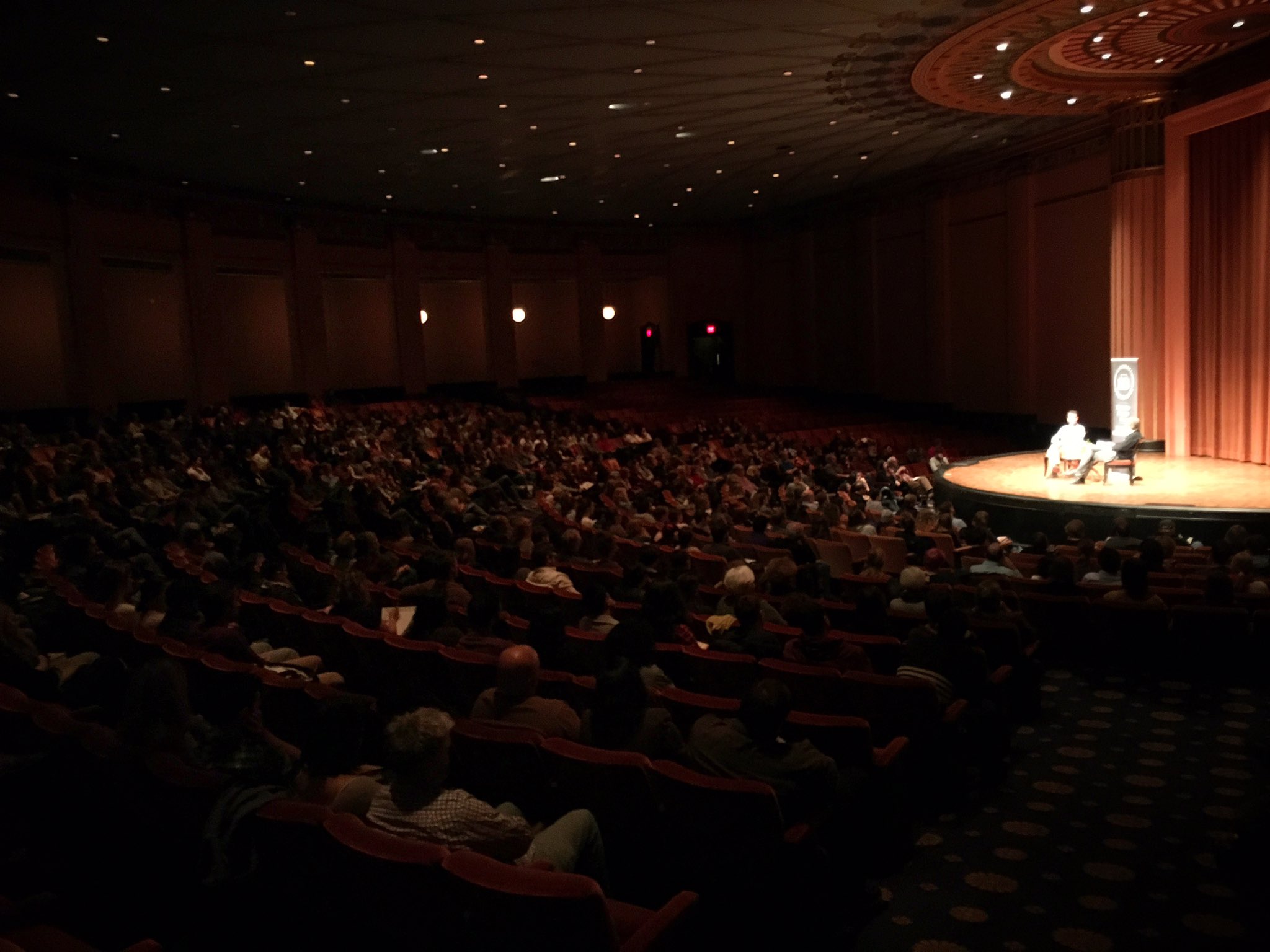
Well, maybe, reading isn’t the most accurate word for it. After all, Jonathan Safran Foer read for a total of about five minutes (exactly two paragraphs). He explained that he hated readings and preferred conversations. Part of this is because he always has to figure out what to read and to whom. He described how he marked and labeled different sections for reading, and that half of these were “probably [about] jerking off,” which while that might make a great section for Ann Arbor, would probably not be so well-recieved in Nashville. The section he ended up reading was focused on the married couple who’s story makes up the heart of the novel. It included the wonderful line: “their inner lives were overwhelmed by all the living.”
The bulk of the evening was dedicated to the conversation with Douglas Trevor, though the conversational aspects were dubious. Jonathan Safran Foer had a habit of commenting halfway through a question and talking about whatever that half-question led him to. It didn’t seem necessarily that he was trying to lead the conversation in a certain direction or anything, more like he was too impatient to wait for the full question and he had to blurt out the ideas already forming in his head.
Still, the conversation turned out interesting at least. One of my, and I believe the rest of the audience’s, favorite parts was when JSF responded to a question about all the interesting tidbits of information and ideas placed in his novels, specifically, if he kept a scrapbook of such ideas to place in his works. JSF’s initial response was “I am never writing unless I’m writing,” which is very standard fare, but his answer continued on into further explanation, next describing how he doesn’t think. Like at all, or at least, unprovoked. He described his thoughts as responses–either to writing or conversation–and that when he is say, walking down the street, his mind is blank beyond basic feelings and thoughts (he wonders if anyone really thinks when they’re simply walking). This lack of thought has even led him to wonder if he really has feelings or if those are also just responses to stimuli. Needless to say, it was fascinating to listen to a world-renown author describe how few thoughts he has.
In response to another question, JSF described, rather beautifully, how when he is writing, no matter what he is writing, he feels that “this is the last thing you’ll ever write.” Not because he doesn’t plan on ever writing again obviously, but because “the person writing this book will not write another.” As in the sensibilities he has now will not be the same he has when he is older–looking back at his old work, he feels that these books were not written by him, as in current present JSF, but by a distinctly past version of himself. This makes sense given he wrote his first novel as a college student and his most recent one as a family man–people change, sometimes quite drastically.
In his Q&A with members from the audience, there was a question from one man which was prefaced by him stating that Jonathan Franzen was actually his favorite writer, to which JSF seemed a bit offended that this man would state that to him so matter of fact. When the man then attempted to backpedal by saying no disrespect, JSF said “respect is for losers.” He proceeded to answer the question somewhat adequately, but in a sense this interaction served as a summary of the entire night. Highly entertaining, kind of informative, not quite rude, but also just plain off.

